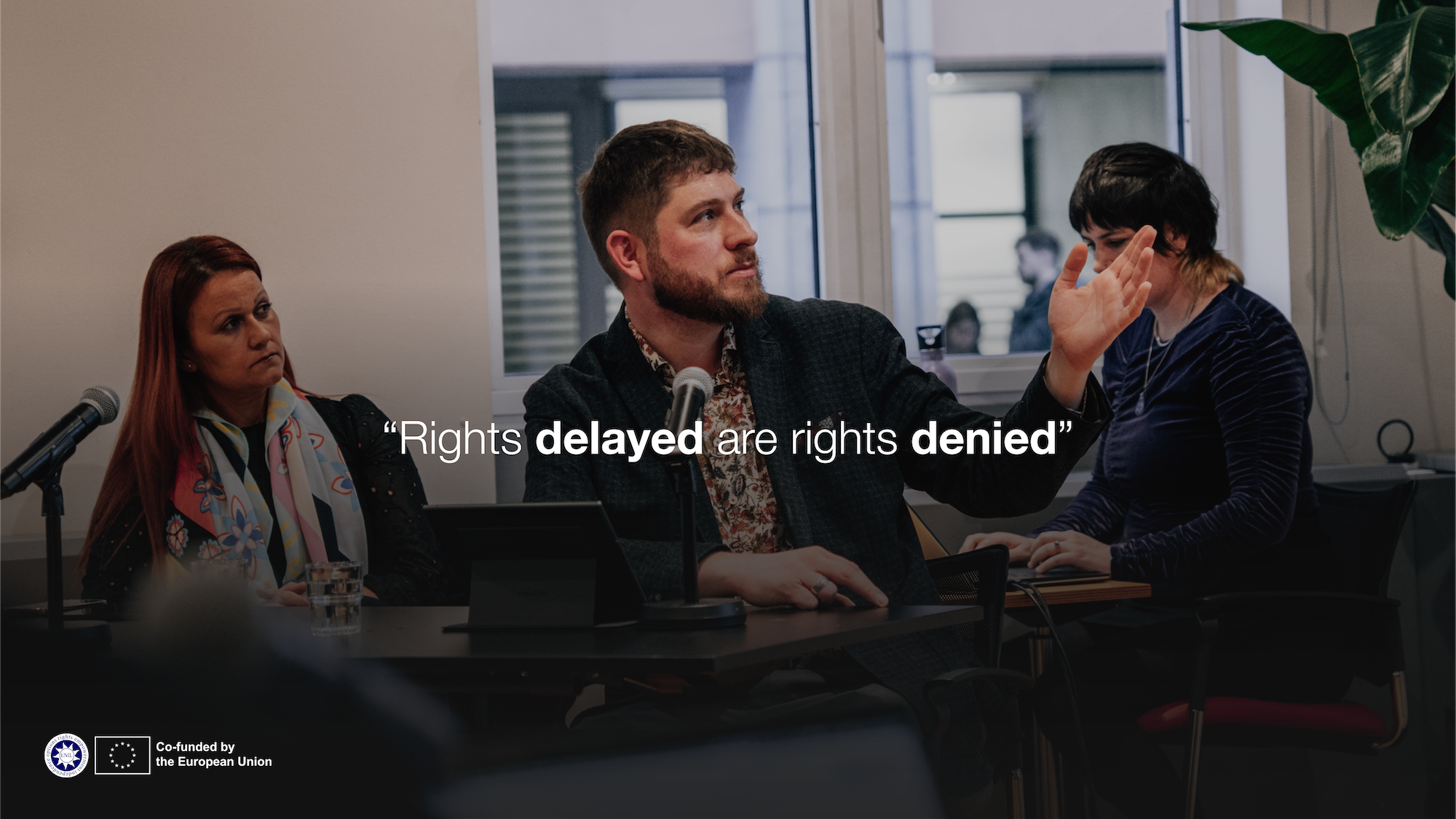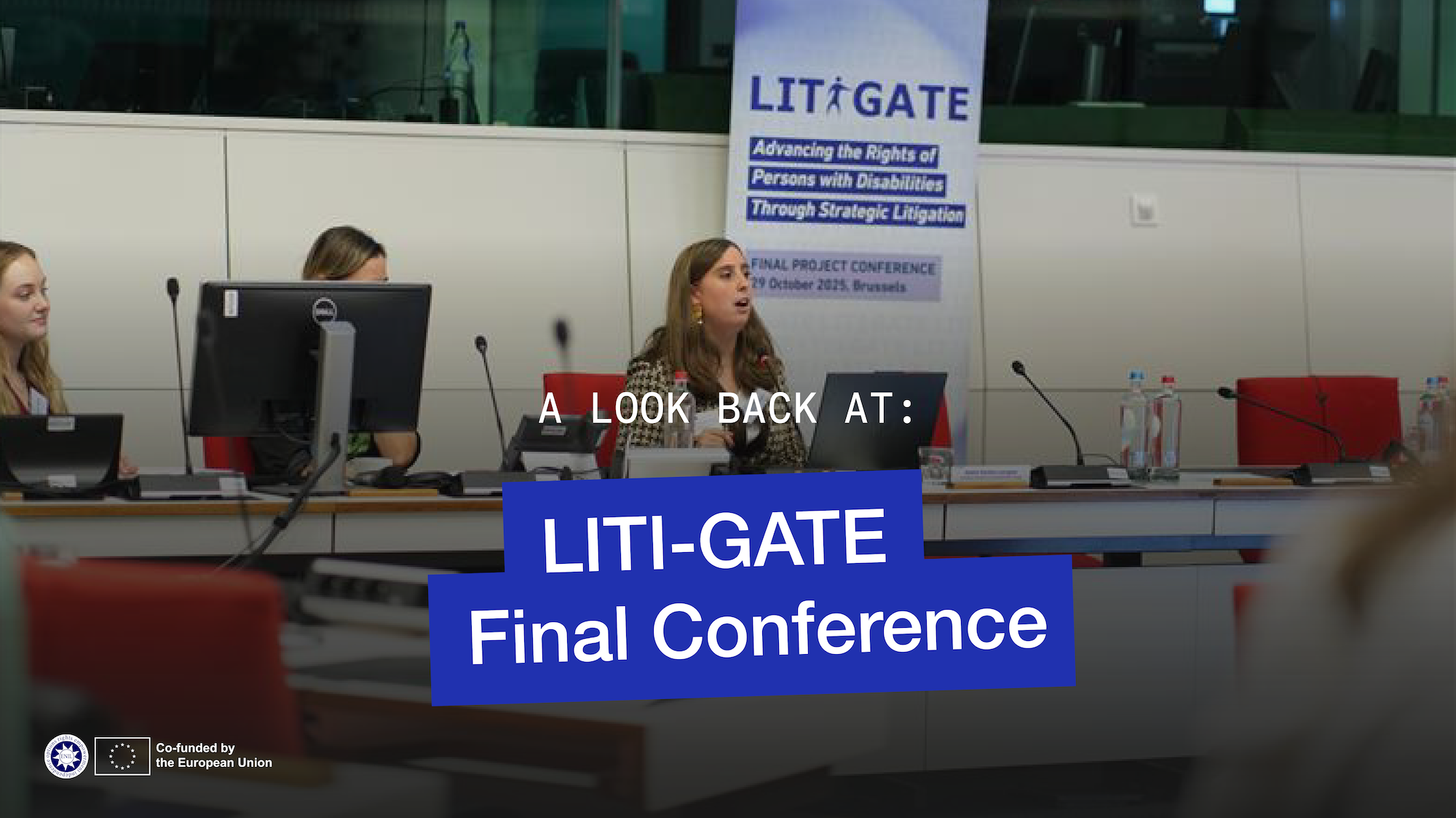Brussels, 3 April – Advice from governments, in light of COVID 19, has been for people to stay at home. For people belonging to high risk groups, including many persons with disabilities, the message to self-isolate and to stay at a distance from other people has been even clearer, or imposed by law.
However, for millions of persons of disabilities that rely on professional assistance in their homes, this is an impossible situation. Often, the assistance needs to be given in close physical contact with the person – such is the case for carers, personal assistants and deafblind interpreters, to name a few.
The reality is grim – professionals and persons with disabilities are not being provided with personal protective equipment, nor priority to access it. Often, professionals such as personal assistants, deafblind interpreters and physiotherapists have been unable to continue offering support, because they themselves have contracted the virus or come in contact with persons with COVID 19 and are asked to quarantine. We have also heard reports of professionals being stopped by the police in some countries, as they travel to their clients’ houses.
From one day to the next, persons with disabilities then find themselves with no assistance, and without support from authorities to ensure access to support.
To add to this issue, many governments are failing to treat these support workers as ‘key workers’ during this crisis. This leads to some agencies and user-led organisations that provide in-home support and personal assistance discontinuing their services. The solutions that governments are providing are dangerous: often they suggest that persons with disabilities move to residential institutions, taking away their personal freedom and exposing them to infection, isolation and abuse. Institutions are not a solution for ensuring the safety of persons with disabilities, especially during this pandemic.
We call on the European and national authorities to:
- Earmark EU funding from the European Coronavirus Response Investment Initiative specifically to support community-based disability support services.
- Designate providers of support services (including carers, support workers, personal assistants and deaf-blind interpreters) as ‘key workers’ who should continue to work and be provided with the personal protective equipment and instructions needed to minimise exposure and spread of infection, as well as be proactively tested for the virus. Workers should be allowed to travel to and from the workplace (both organisations or clients’ homes).
- Provide personal protective equipment to persons with disabilities, their carers and support workers, including personal assistants and deaf-blind interpreters.
- Support agencies providing disability support and user-led organisations in developing continuity plans, for situations in which the number of available caregivers or personal assistants may be reduced. This includes reducing bureaucratic recruitment barriers while still maintaining protection measures, such as background checks for caregivers.
- Guarantee that persons with disabilities are not institutionalised because of a lack of the necessary assistance and support or other consequences of quarantine procedures.
- Guarantee that persons with disabilities are treated on an equal basis with others and are not denied medical care on the basis of disability. This includes giving information to hospital staff on how to adjust standard procedures to take into account access needs (call button within reach, safely change the position of a person to avoid pressure wounds).
- Conduct community outreach and monitoring activities to identify and help those persons with disabilities deprived of their liberty or ill-treated at home or in institutions, and provide adequate support to them in a manner that respects their human rights.
- Provide an accessible hotline for disability services so that service users and people in the support network are able to communicate with government and raise concerns.
- Provide persons with disabilities and their family members with information and guidance on what steps they can take in case their personal assistants, carers or other professionals providing support become ill with COVID-19.
- Work with local businesses and communities to ensure people with support needs have priority access to food and shopping delivery services and other essential home support.
- Involve disabled people in the drafting and provision of information around COVID-19, to ensure it is accessible to those with different communication needs.
This is a joint statement by European Disability Forum and European Network on Independent Living.
Find more information on COVID-19 personal experiences and response on our dedicated page.


